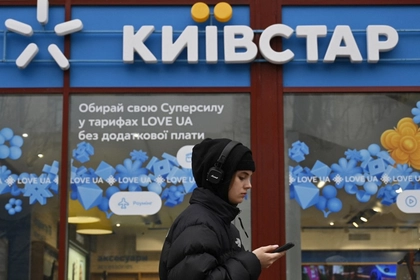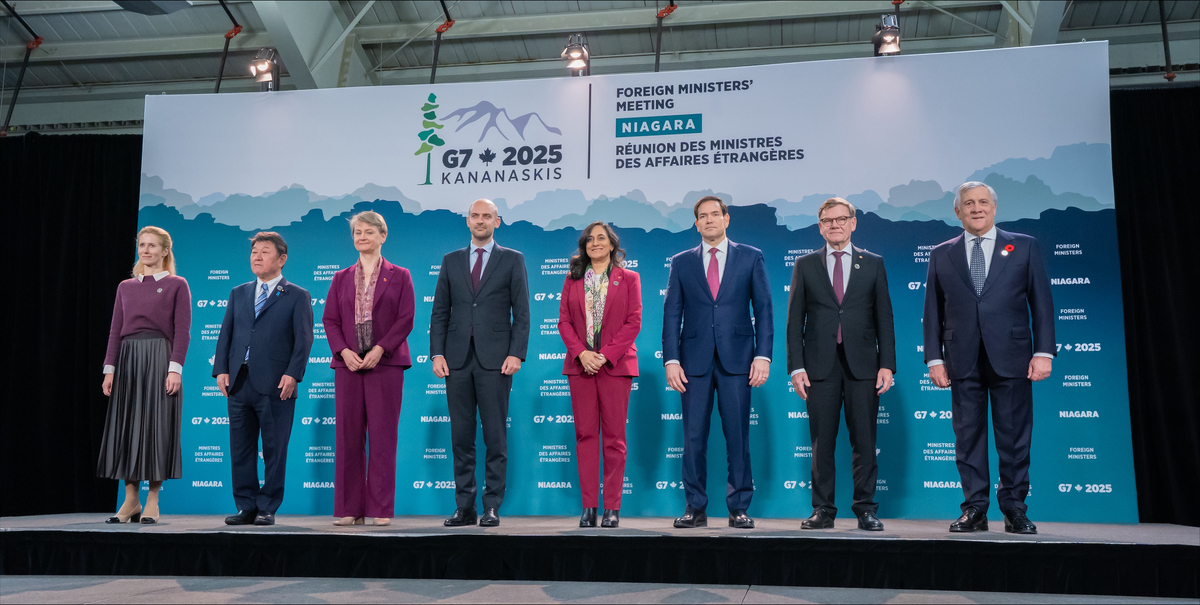NIAGARA, Ontario – Top diplomats from the world’s leading industrialized democracies have converged on southern Ontario, with Russia’s war in Ukraine dominating their agenda.
Before pivoting to discuss trade spats and defense spending demands, G7 foreign ministers will meet with Ukraine’s top diplomat early Wednesday to coordinate fresh aid as Russia intensifies its winter assault on the country’s energy grid.
Follow our coverage of the war on the @Kyivpost_official.
The sense of urgency is palpable. Russia’s systemic strikes have plunged Ukrainian cities into darkness just as temperatures plummet toward minus twenty degrees. According to the UNHCR, this crisis has resulted in more than twelve million Ukrainians now requiring assistance.
Responding to the immediate need, Britain and Germany have stepped up, announcing on Monday $17 million and $46 million respectively, to repair Ukraine’s power and heating systems.
Canada, as the host nation for this G7 summit, is actively pushing for a broader commitment that comprehensively ties together humanitarian relief, reconstruction efforts, and long-term security guarantees for Kyiv.
“This meeting is not about optics,” one senior European diplomat told Kyiv Post. “It’s about ensuring Ukraine doesn’t freeze – literally or politically – this winter.”
Stakes for Ukraine and defense cooperation
Ukrainian delegations arrived not seeking miracles, but rather to ensure that existing promises of support hold firm.

Other Topics of Interest
Ukraineʼs Kyivstar Revenue Climbs 20%, Digital Business Expands to 12%
Kyivstar Group reports $73 million adjusted profit despite $162 million Nasdaq-related accounting charge.
To that end, ministers will host a special session with Kyiv’s top diplomat this morning specifically focused on Ukraine and Defense Cooperation.
Andrew D’Anieri, associate director at the Atlantic Council’s Eurasia Center, told Kyiv Post on Monday that Ukraine “should stick to the script on economic partnership with the US and show once again that it is a strong and committed partner.”
D’Anieri further advised that Ukraine’s diplomats must work closely with their European counterparts “to ensure American promises of military aid come through in a timely fashion.”
“This may take some further commitments on reducing dependence on Russian oil,” he said.
He also commended Canada’s decision to invite key energy producers such as Saudi Arabia and transit nations like Turkey as “strategically smart,” believing this could help secure stable hydrocarbon supplies for Europe’s energy transition away from Russia.
Canada’s balancing act
Hosting the G7 during one of the most geopolitically fragile moments in years presents a delicate challenge for Canadian Foreign Minister Anita Anand.
She faces her own balancing act: on one hand, she must reinforce Canada’s steadfast support for Ukraine — Ottawa has been among Kyiv’s strongest backers — while on the other, she must navigate increasingly strained relations with Washington.
Canada’s G7 hosting duties have, in fact, been overshadowed by persistent trade friction with the Trump administration. The US president abruptly ended trade talks after an anti-tariff advertisement from Ontario aired in American markets.
Prime Minister Mark Carney has since apologized and offered to restart negotiations, but tensions undeniably linger.
Anand, who will meet US Secretary of State Marco Rubio during the summit, downplayed the rift. “Every complex relationship has numerous touch points,” she said. “There is continued work to be done on trade — and across the range of issues that bind our two nations.”
Trump’s demands and Europe’s unease
Those “issues” are multiplying. Trump’s latest push — demanding NATO allies spend five percent of GDP on defense — has unnerved even America’s closest partners.
While several countries, including the UK and Poland, have endorsed higher spending targets, Canada and Italy remain well short. Anand announced that Ottawa’s defense budget will reach 2% this year and 5% by 2035, backed by an $80 billion increase.
Nevertheless, for many European officials, Trump’s demands seem detached from political reality. “This is not about defense anymore; it’s about leverage,” one German diplomat said privately. “The US is using defense spending as a loyalty test.”
In private, Western diplomats suggest the G7 is increasingly defined by managing US unpredictability rather than shaping a collective global strategy.
“We want to see continued US leadership in Ukraine,” said one senior EU official, “but leadership requires predictability — and that’s what’s missing.”
Atlantic Council’s D’Anieri believes domestic politics may ultimately push Trump toward a more assertive stance on Ukraine.
“Poll after poll shows Americans—including Republicans and Independents—blame Russia for the war and want to see the White House do more to push back on Moscow’s aggression,” he said, explaining that with the White House under pressure at home, Trump has an incentive to show results and prove he can secure peace without looking weak on the world stage.
Minerals, migration, and the future of the West
While Ukraine dominates the proceedings, the G7 agenda stretches further to encompass economic security, migration, and critical minerals.
Britain’s foreign secretary plans to warn against overdependence on limited suppliers, calling for greater G7 coordination on supply chain resilience.
Canada, with its 34 critical minerals coveted by the Pentagon, is actively positioning itself as a reliable supplier for the alliance’s defense and tech industries.
Still, as diplomats toast local ice wine by the lake, few illusions remain about the gravity of the moment. The G7 – once a confident club of like-minded democracies – now feels more like an uneasy coalition trying to manage divergent priorities while holding the line for Ukraine.
As one European envoy put it late Tuesday: “This summit is about more than keeping Ukraine warm this winter. It’s about keeping the West together.”
